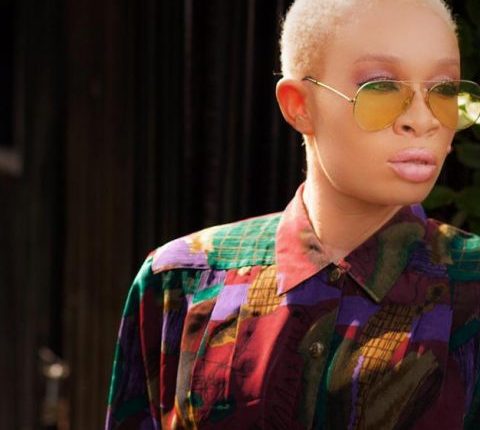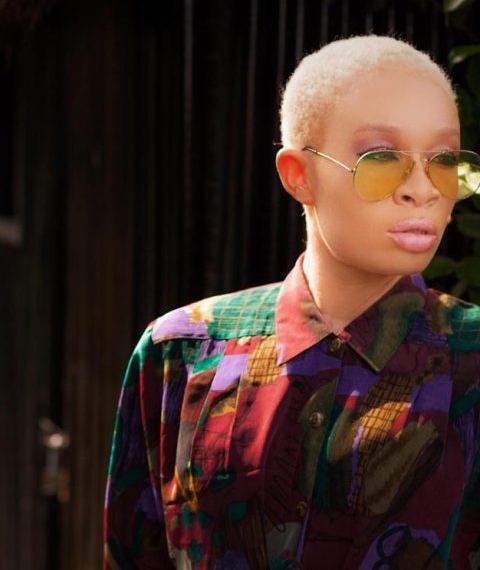
June 13 is International Albinism Awareness Day, a day set aside by the United Nations to celebrate the rights of persons with albinism worldwide.
In this interview, Kehinde Adegboyega spoke with Madubuonu Stephanie Onyinye, a person living with albinism, who speaks about the challenges people with albinism face, and the way forward.
Question: Can you introduce yourself?
Answer: I’m Stephanie Madubuonu. I’m a Preschool teacher, Model and graduate of Business Administration from Nnamdi Azikiwe University, Awka. I’m 27 years old will be 28 on the 23 of June 2019, even though I don’t look a bit like it.
Question: What is your experience growing up with albinism?
Answer: Being the second child and the only one living with albinism wasn’t as challenging as most people would think because I have the love of my family.
Question: Will you say it’s because you are ‘privileged’ to be born with a silver or gold spoon?
Answer: No it’s not even close to a silver spoon. My family is something I’ll call a struggling average kinda background but we were happy.
Question: What part of Lagos did you grow up?
Answer: I grew up in Ikotun and attended St Saviors High school. I went to the best schools my parents could afford and was given the best skin care even though they were misinformed but it helped.
Question: Talking about skin care which seems to be a challenge with living with albinism, what would you advise Persons living with albinism and their parent?
Answer: Skincare routine is something parents of persons living with albinism should actually take seriously when their children are much younger. Routines like; eye checks, good moisturizers, sunscreen, protective clothing and hats. Lots of water intake and eye supplements if necessary.
Question: Are these care affordable for poor parents especially with the present high rate of poverty?
Answer: Albinism is just a condition and not a disease as most people would think. It should not limit you to be whatever you wanna be. Yeah, sure these things can be substituted. Hats, umbrellas and protective clothing can replace sunscreen, As long as the child has just a little or no exposure to the sun.
Question: And the moisturizers? Do you think there is need for advocacy on how to make these products more affordable for people living with albinism?
Answer: Yes, but I think sunscreen is more important and should be affordable for the less privilege persons with albinism.
Question: And how do you balance protecting your skin in a hot weather and when you need to expose your skin for more fresh air?
Answer: I rarely go out without a sunscreen on because as little as the sun ray reflection is, it is as dangerous as the direct contact with the sun. Hence you might think it’s safe but the effect comes much later with a reddish scar. As for me, I wear whatever I’m comfortable in. I don’t limit myself to certain clothes because I love fashion but I’m always conscious of my skin hence I generously apply sunscreen on the exposed part.
Question: How much does an average sunscreen cost for a month?
Answer: There are actually different companies producing sunscreen and they vary in price and SPF levels. So it depends on how often one is actually being exposed to the sun.
Question: Okay. Does living with Albinism affect the choice of career, way of life and employment opportunities and do you think people living with albinism are discriminated against in the workplace in Nigeria?
Answer: Yeah the stigmatization cuts across many sectors hence employment is not left behind. Most times we are judged even before we get the chance to be tried. When we can easily be allowed a chance to prove our capabilities and intelligence we are hastily dismissed with the notion that our low vision could obstruct our effectiveness but I often smile at how I awe people with my performance when given the chance to. I enjoy making a lasting’ statements’ and watch how the event unfolds. I always try to reach out to Persons with albinism any way I can. I actually dedicated my Instagram handle @albinism_publicist to this course and I’m using my modeling career also to give voices to persons with albinism here in Nigeria.
Question: Well done. Have you heard about the Disability Law? Do you think people living with albinism should seek protection against discrimination with that law?
Answer: Well, I don’t see albinism as a disability so I won’t subscribe to that. I would rather government supports foundations to assist the less privileged ones with the essentials needed.
Question: Why are you into modeling?
Answer: Apart from its being something I’m passionate about like my teaching profession. I see it as a tool to redefining the underrated beauty of persons with albinism, giving voices and acceptance to persons with albinism.
Question: Are you presently signed to a modeling company or freelancing?
Answer: I’m signed to Exquisite models international while I’m still hoping to get signed by bigger agencies.
Question: Will it affect your 9-5 job (Teaching job) or are you willing to go into modeling full time?
Answer: I’m shuffling both actually because I have huge plan of bagging a Montessori teacher’s diploma certificate and owning a Preschool afterwards.
Question: When and what was your first experience with modeling like?
Answer: Even though I just started. My experience with Exquisite models international has been amazing. I look forward to greater challenges because I’m ready for the camera. I look forward to a big modeling platform that will explore me and unravel my beauty and creativity.

